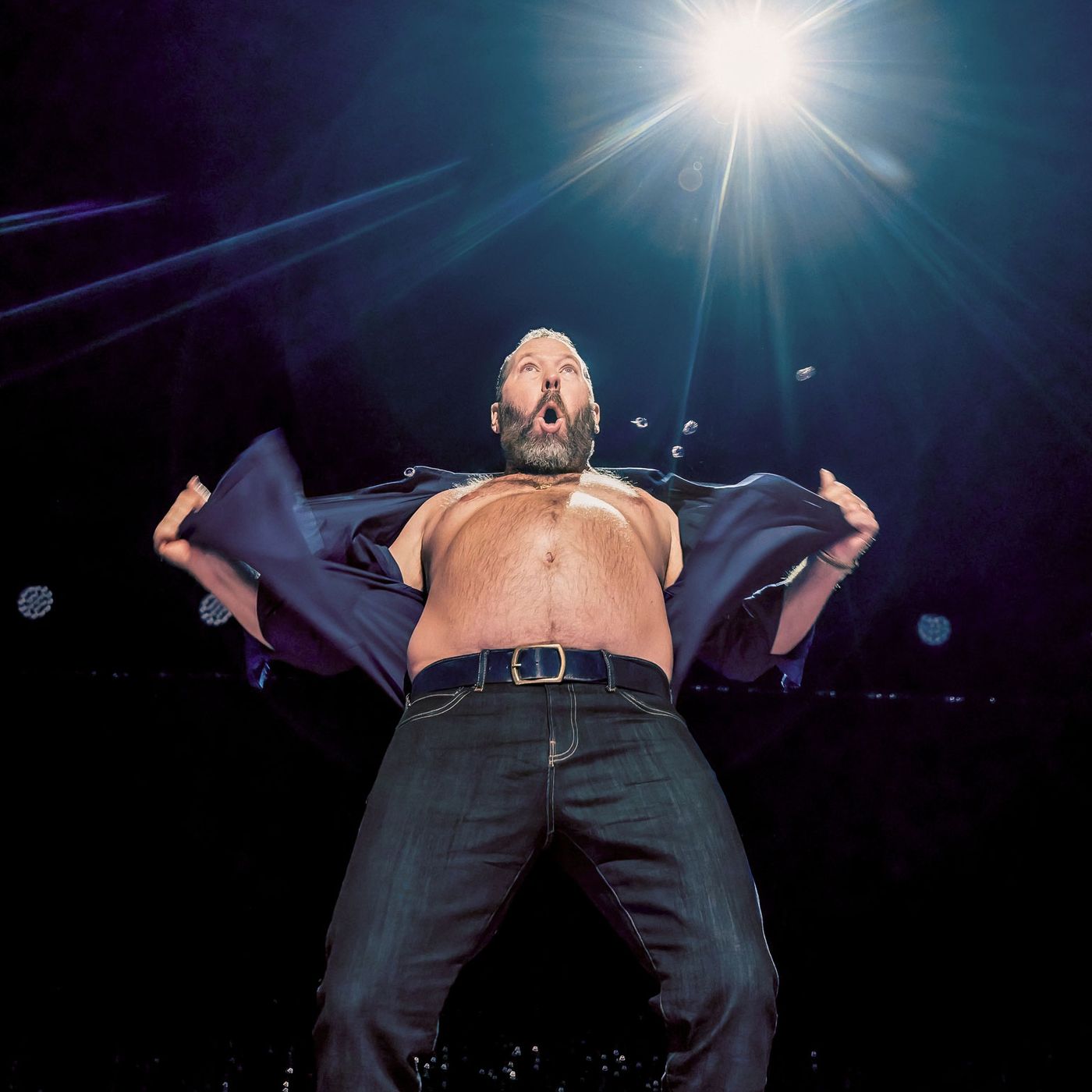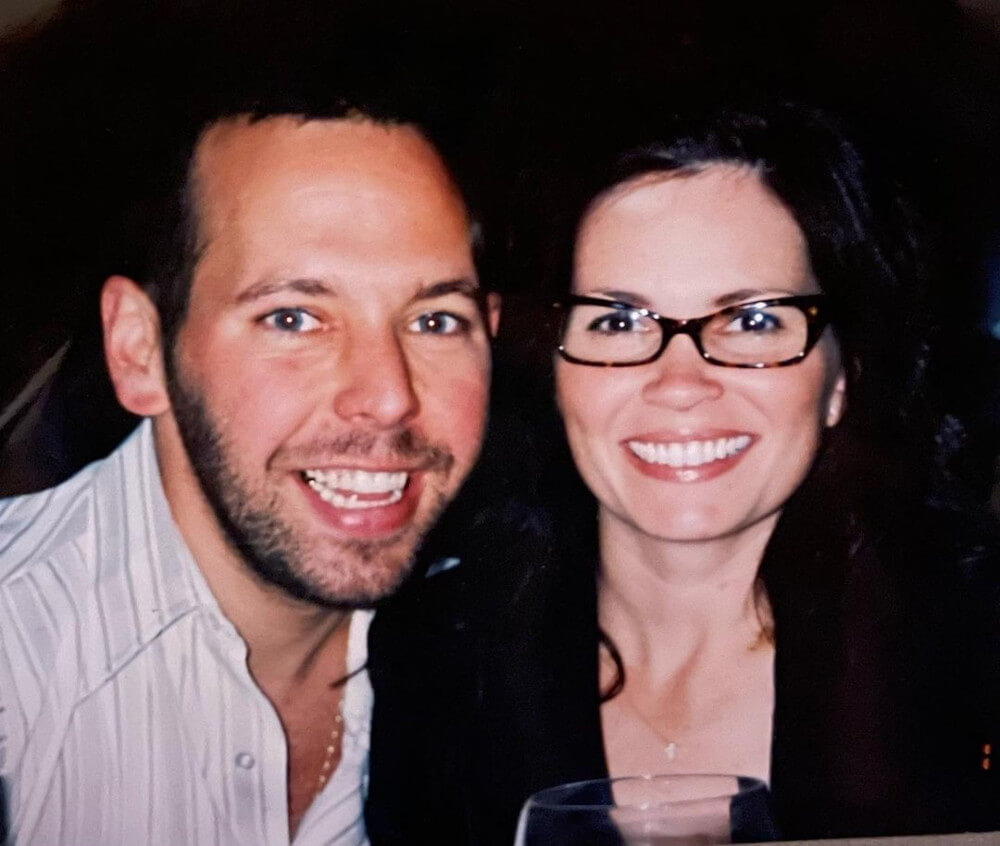Does the man behind "The Machine" truly lean towards a specific political ideology? While Bert Kreischer may not wear his political heart on his sleeve, a closer examination of his comedic material and public statements reveals subtle but significant clues about his potential political leanings.
Bert Kreischer, a name synonymous with raucous comedy and captivating storytelling, has carved a unique niche for himself in the entertainment industry. Born in Tampa, Florida, on November 3, 1973, Kreischer's journey to stardom is as unconventional as his comedic style. From his early days as a party-loving student at Florida State University (FSU) to becoming a globally recognized stand-up comedian, podcaster, and television personality, Kreischer's career is a testament to his charisma, resilience, and ability to connect with audiences on a deeply personal level. But beneath the surface of his outrageous stories and boisterous persona lies a more complex question: What are Bert Kreischer's political affiliations?
Kreischer's onstage persona, often characterized by self-deprecating humor and tales of misadventures, provides a window into his potential political leanings. While he has never explicitly declared his political affiliation, certain themes and perspectives consistently surface in his comedy, offering valuable insights into his potential political inclinations. His routines frequently touch upon issues of personal freedom, individual responsibility, and skepticism toward government overreach. While these themes resonate with a broad audience, they also align with core tenets of the Republican Party, suggesting a possible inclination towards conservative values. However, it is crucial to remember that Kreischer is a comedian, and his primary goal is to entertain. He often emphasizes the distinction between his comedic persona and his personal beliefs, cautioning audiences not to take everything he says on stage at face value. Therefore, it's necessary to approach the question of his political affiliations with nuance and a critical eye.
| Full Name | Albert "Bert" Kreischer |
| Date of Birth | November 3, 1973 |
| Place of Birth | Tampa, Florida, USA |
| Education | Florida State University (majored in English, though known for his social life and party reputation) |
| Occupation | Stand-up comedian, podcast host, actor, and writer |
| Known For | His stand-up comedy, the podcast "2 Bears 1 Cave" with Tom Segura, and his persona as "The Machine" |
| Notable Works | Stand-up specials, various television appearances, and the film "The Machine" (2023), based on a true story from his life. |
| Political Views | While not publicly declaring a political affiliation, his views on gun rights, lower taxes, and personal freedom often align with Republican ideals, though he emphasizes the distinction between his comedy persona and personal beliefs. |
| Website for Reference | Official Website |
The story that launched Kreischer into the public consciousness took place in 1997 when he was featured in a Rolling Stone article. The magazine, captivated by Kreischer's reputation as a legendary party animal, dubbed him the "top partier" at the nation's number one party school, Florida State University. This article marked the beginning of Kreischer's journey from college party scene to mainstream recognition. His six years at FSU, where he majored in English, provided the raw material for his comedic storytelling. The article highlighted the many stories and misadventures of his university life that would later become a staple of his stand up. It wasn't just a chance encounter; it was the moment Bert Kreischer, the comedian, was truly born.
The world, however, is often filled with strange rumors. One such story surfaced recently concerning a purported arrest in February 2024. However, such claims require careful verification. Fans are often skeptical of new tales associated with him, given his knack for outrageous stories, which are usually exaggerated. The question of whether Kreischer was indeed under arrest remains unconfirmed, another layer to the complex fabric of his public image.
Beyond the specifics of his material, Kreischer's public statements and actions provide further clues about his possible political alignment. He has expressed support for gun rights, a stance often echoed by Republican politicians. Additionally, his emphasis on personal freedom and individual responsibility aligns with conservative ideals. However, it is equally important to acknowledge that these are broad themes that transcend party lines. Many people from diverse political backgrounds hold similar views on these issues. Therefore, while Kreischer's views may align with certain Republican values, it does not necessarily mean he is a registered Republican.
- The Journey Of Sandra Oh Exploring Her Role As A Mother
- Steve Martins Daughter Meet The Comedians Only Child
One of the most interesting aspects of Kreischer's career is the way he navigates the intersection of comedy and politics. He is aware of the potential for controversy and always emphasizes that his comedy is designed for entertainment, not political indoctrination. He cautions audiences not to take everything he says on stage at face value, acknowledging that his persona is often a heightened version of himself. This self-awareness is crucial, allowing him to explore sensitive topics while maintaining a level of detachment. It gives him the freedom to push boundaries while avoiding the pitfalls of polarizing rhetoric.
Kreischer's influence extends far beyond the stage. His podcast, "2 Bears 1 Cave," co-hosted with fellow comedian Tom Segura, provides a platform for him to engage in discussions about various topics, including politics and society. Through this medium, Kreischer influences public opinion, even if indirectly. He encourages his listeners to think critically, question assumptions, and engage in respectful dialogue. This is particularly relevant in a world increasingly divided by political and social issues. His ability to create a space for open discussion and thoughtful consideration is a testament to his influence.
His influence is also on display when he appears on other podcasts and shows. Recent appearances alongside comedians like Russell Peters and Tom Segura have consistently drawn large crowds and sold-out arenas. His comedy style, often marked by outlandish stories and self-deprecating humor, resonates with a wide audience. This appeal is a testament to his ability to connect with people, transcending political divides.
The film "Van Wilder," released in 2002, and inspired by the Rolling Stone article and Kreischer's antics at FSU, further amplified his fame. Though not directly about Kreischer's life, the film capitalized on the comedic potential of his college experiences. While his university career may have been primarily dedicated to revelry, it became the cornerstone of his public persona, showcasing his talent to entertain. This film, another indication of Kreischer's success, further boosted his fame.
His story of his journey abroad in Russia with a class trip to Moscow, the source of his "The Machine" nickname, demonstrates his knack for creating outrageous tales. This narrative, like many of his others, becomes a reflection of his personality, and his ability to not be afraid to share embarrassing stories, connects with the audience. If Kreischer hadn't experienced these events, then he would have never gained the nickname.
Kreischer's comedy also touches upon social themes, even if it is not his primary aim. His jokes about social interactions and personal responsibility sometimes mirror broader societal discussions. His comedy style is more often focused on his personal experiences. Kreischer, by entertaining, initiates critical conversations, even if not always explicitly stated. The impact on his audience is often that his viewers and listeners start to see his perspective, even in light of political affiliation.
Even with his comedy and podcast, Kreischer has faced criticism and skepticism. The question of his political affiliation is constant, fans always question his every move. His stance on certain issues, such as gun rights or personal freedom, may be a cause for debate. However, Kreischer's emphasis on separating his personal beliefs from his comedic persona allows him to maneuver through the controversies. By doing this, he can maintain his position as a performer.
The discussion about Bert Kreischer's political standing remains complex, even with these points. It's important to examine the themes, perspectives, and pronouncements that surface in his comedy and public appearances. While his views on gun rights, lower taxes, and personal freedom might resonate with Republican ideals, these points are often broad enough to resonate with different groups. Kreischer is also very clear when he says the material on stage is for entertainment only.
Bert Kreischer's story is a compelling example of how comedy and politics intersect in the modern world. His journey from an FSU party animal to a successful comedian, podcaster, and actor has been marked by humor, controversy, and influence. His ability to connect with audiences, his unique approach to comedy, and his self-awareness make him an important figure. Kreischer's story shows the potential for humor to spark dialogue, encourage critical thinking, and reflect the complexities of our world.


